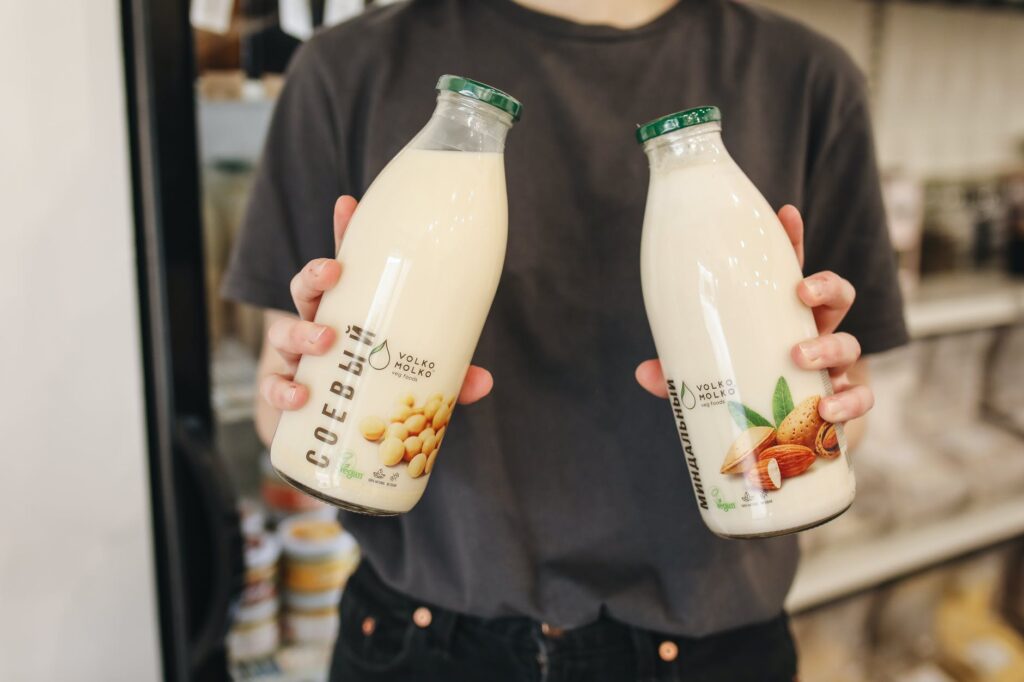The Vegan Society’s definition of veganism is: “A way of living which seeks to exclude—as far as is possible and practicable—all forms of exploitation of, and cruelty to, animals for food, clothing or any other purpose; In dietary terms it denotes the practice of dispensing with all products derived wholly or partly from animals.” As the law has not defined veganism yet, vegan food product labeling is not strict.
Individuals who practice a vegan diet do not consume animals, animal products and by-products, for ethical and environmental reasons. The demand for vegan alternatives has risen since more people began embracing a plant-based lifestyle. As the demand for alternatives has grown, demand in the manufacturing of plant-based options has also increased. If you are a new restaurant owner, a restaurant consultant can guide you with labeling the vegan food products while you are designing the menu.

People with milk and egg allergies may consider these products to be free from allergens, but that may not always be the case. Choosing veganism seems challenging when it comes to navigating vegan food labels.
‘Suitable for vegans or vegetarian’ claims on packaging are covered by Food Information for Consumers and may be perceived by consumers in the same way that allergen food safety advice is which could be fatal to someone with a severe allergy.
As vegans do not typically consume foods containing animal products and by-products it should also be mentioned that vegan products should also be free from animal products. If you are a new restaurant owner, a restaurant consultant can guide you with labeling the products while you are designing the menu.
Since there is no legal definition of veganism, it gives an opportunity to food producers to manufacture vegan products on the same line as a non-vegan product which could result in a cross-contact. For example, ‘may contain milk and eggs’ is permitted on vegan food product labels to indicate to consumers there is possible cross-contact while processing
Some conscious retailers are uncompromising and do not permit vegan products to have a cross-contact of any animal-derived ingredient. To reduce confusion, manufacturers have preferred to use the term ‘plant-based’. Plant-based, suggests that the product mostly contains foods derived from plants without compromising the term vegan or the expectations of those following a vegan diet.
For a food manufacturer to display the Vegan Society’s Trademark, the products:

Must
- Be prepared separately from non-vegan dishes.
- Be eliminated from any kind of risk of cross-contamination.
- Intend to uphold Vegan Trademark standards on an ongoing basis and demonstrate ongoing compliance.
- All food handlers and employees should be trained on the best practices of handling vegan products.
Must not
- Contain any type of animal.
- Contain animal products in the manufacturing of the product.
- Contain animal by-products or derivatives.
- Involve testing on animals. Include genetically modified animal genes.
Manufacturers can use the phrase ‘may contain’ on labels and packaging to indicate that cross-contacts of allergens or animal substances may occur in production. However, they are encouraged to minimize such events. Our restaurant consultant team at HPG will not just enable you to run your restaurant smoothly but also ensure that you do not end up making fatal mistakes while designing the menu.
The Vegetarian Society also accredits vegan food products through their Approved Vegan Trademark. The Vegetarian Society Approved Trademarks can also be found on restaurant menus. For a food producer to display the Vegetarian Society’s Approved Vegan Trademark, the products:
Must not
- Contain any animal-derived ingredients.
- Involve or have involved testing on animals.
- Include genetically modified animal genes or animal-derived substances.
- Contain any cross-contamination of animal products.
The major difference between the two sets of standards is that the Vegetarian Society’s Approved Vegan Trademark does not allow the phrase ‘may contain’ on labels and packaging to indicate cross-contact of allergens or animal substances.
Though some vegan symbols and logos are more widely recognizable than others, each country and region may have its own vegan logo with its own set of standards. Food producers looking to export vegan products may want to look into the vegan logos of the region they want to export to.
How To Avoid the Risk Caused by Vegan Labels?
Consumers who consume vegan food products for ethical reasons do not accept animal product cross-contacts. So, they should be conscious and should carefully check the package labeling for ingredients and allergens displayed in bold font, to avoid consuming a potential cross-contact. If in doubt, consumers can contact manufacturers directly to find out if the product is free from animal products if it is something that they wish to buy frequently.